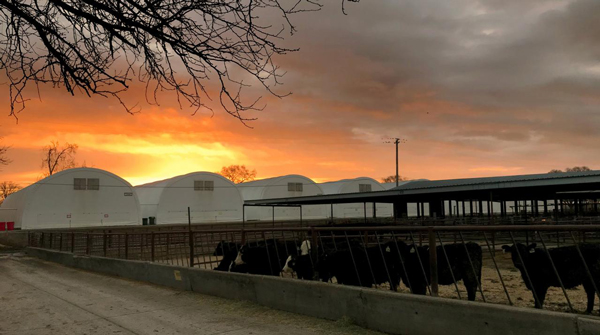
THREAD 🧵
A recent @TheEconomist article has claimed that we should treat beef like coal to save the planet. We need to reduce emissions where we can, including livestock, but I have a few issues with their story.
Let’s debunk some claims, shall we?
1/
econ.st/3Dy3kto
A recent @TheEconomist article has claimed that we should treat beef like coal to save the planet. We need to reduce emissions where we can, including livestock, but I have a few issues with their story.
Let’s debunk some claims, shall we?
1/
econ.st/3Dy3kto
This article is clearly aimed at readers in the U.S. and the West, to reduce beef consumption. But it uses global emissions which don’t do a great job of characterizing the impact livestock in the U.S. has on climate change.
2/
bit.ly/ch4vsco2
2/
bit.ly/ch4vsco2
It attributes the “full impact of deforestation to the agriculture that results from it.” We absolutely need to stop deforestation. But American beef consumption doesn't lead to that, in part because of where our beef is typically exported.
3/
bit.ly/deforestationb…
3/
bit.ly/deforestationb…
The argument goes, if Americans eat less beef, U.S. beef producers will turn to exporting more of their product, which will stop cattle producers in other countries from deforesting their homelands.
4/
4/
The thing is, Americans are eating less beef and producers are exporting more but we’re still seeing deforestation for grazing in parts of the world. It’s significantly more complicated than saying an American forgoing a burger will protect the Amazon.
5/
bit.ly/38tvTuF
5/
bit.ly/38tvTuF
This article also takes a global cradle-to-grave LCA for animal agriculture, and compares it to tailpipe emissions from transportation. Doesn’t seem like a fair comparison. Does it?
6/
bit.ly/3DBiOO5
6/
bit.ly/3DBiOO5
And the fact that “it takes 33 plant calories to produce one calorie of beef,” is misleading at best. Cows mostly eat what humans can’t including roughage on marginal lands and upcycle waste that would normally go to landfills.
7/
7/
Lab grown meats are a far way off from being cost-competitive at $10,000 per lb. They also have a scalability problem.
Issues @JoeFassler @TheCounter has researched and presented in a very good article
8/
thecounter.org/lab-grown-cult…
Issues @JoeFassler @TheCounter has researched and presented in a very good article
8/
thecounter.org/lab-grown-cult…
My recent white paper with @drsplace outlines a path to climate neutrality for the beef and dairy industries by 2050. An achievable goal that’ll take hard work and innovation.
9/
clear.ucdavis.edu/news/climate-n…
9/
clear.ucdavis.edu/news/climate-n…
It’s outlandish to see comparisons of beef to coal. Reducing methane 18-30% can get U.S. dairy and beef to climate neutrality. We need to reduce coal (and other fossil fuels) 100% to get there.
Don't let agenda-driven articles, like this one, fool you.
10/10
Don't let agenda-driven articles, like this one, fool you.
10/10
• • •
Missing some Tweet in this thread? You can try to
force a refresh




